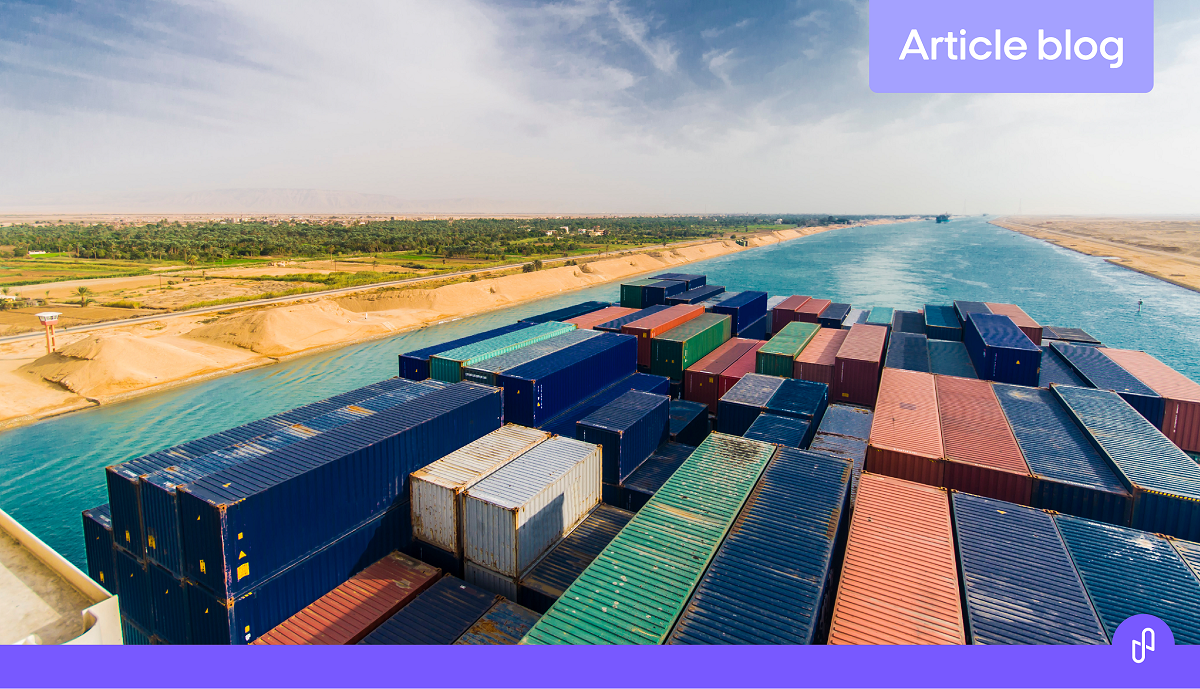
Three years after the grounding of the now-infamous Ever Given, the Suez Canal, a vital artery of global maritime trade facilitating the passage of nearly 10% of international trade, is once again in the spotlight due to attacks on ships in the Red Sea by Houthi rebels. The impact on international trade is dramatic and once again disrupts traditional navigation routes.
A reminder of the fragility of supply chains.
This event once again highlights the fragility of global trade routes which, despite technological advancements, remain vulnerable to physical disruptions. The Suez Canal, as a key transit point, plays a crucial role in maintaining the fluidity of international trade, especially for the transportation of oil and various goods.
In January 2024, it saw nearly 5 million metric tons of trade and 150 fewer ships pass through than the previous year, due to ongoing attacks in the Red Sea. These actions forced hundreds of ships to divert their route, adding at least 4,000 nautical miles and 10 days to their journey, with direct implications on transport costs and environmental sustainability.
Immediate impacts for businesses and their customers
The delays caused by this incident have had immediate repercussions on delivery times and transport costs, fully impacting freight transport companies and their customers. The events led to a 67% decrease in container ship transits compared to the previous year. Natural gas carriers have simply stopped passing through this route since January 16.
The increase in freight costs, resulting from the need to reroute ships or use longer routes, affects the entire supply chain, impacting the prices of consumer goods. Oil is obviously part of this, and the upward trend is already being felt at the pump.
Industries dependent on specific components or raw materials, such as electronics, automotive, and textiles, have also been particularly affected, facing shortages and production interruptions.
Resilience and flexibility more relevant than ever
This incident once again underscores the importance of supply chain resilience and flexibility. Strategic planning, innovation, and investment in technology are more crucial than ever for navigating an unpredictable commercial and geopolitical environment.
At the heart of this issue, digitalization is decisively a major component for the evolution of maritime transport, and companies must manage to equip themselves with innovative and sustainable solutions that will help secure their supply chains and, more broadly, optimize their logistic performance at all levels.




